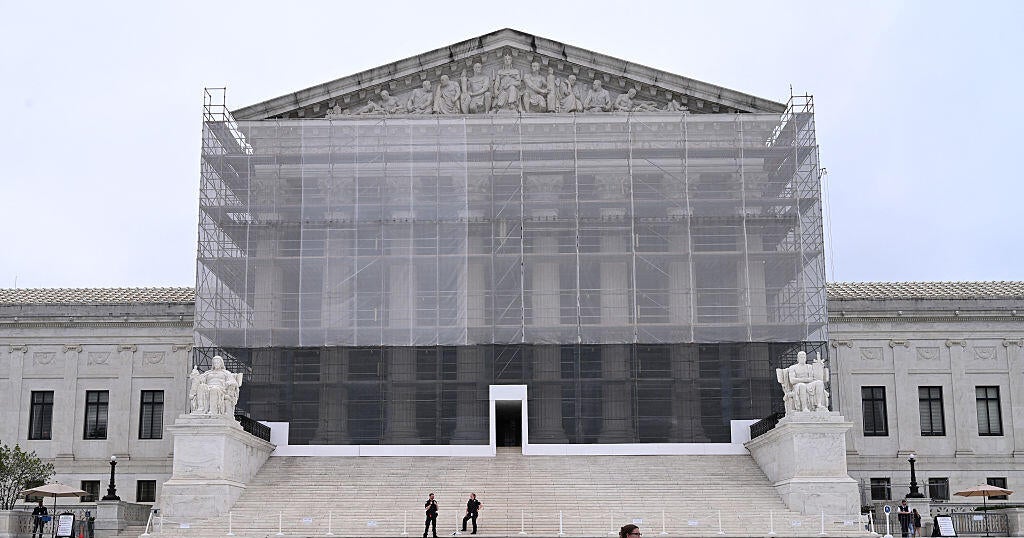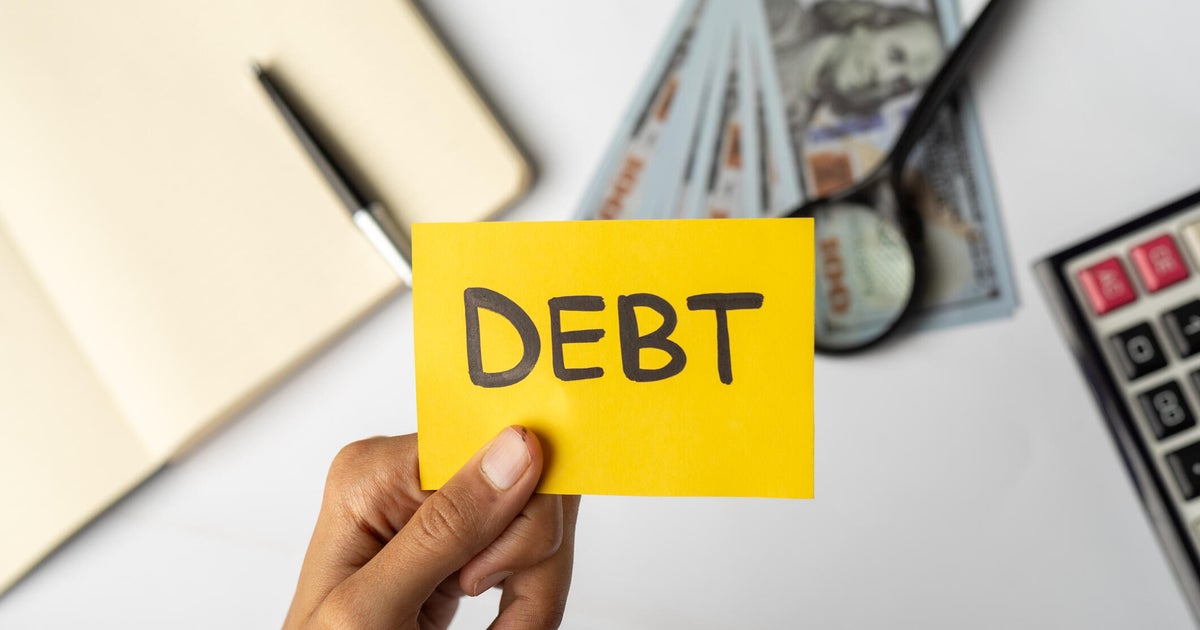 Some debt relief strategies can save borrowers more money than others at this time.
Getty Images
Some debt relief strategies can save borrowers more money than others at this time.
Getty Images
It's no surprise that so many are struggling with debt. After all, rising costs over the past several years have pushed more families to rely on credit cards. And with credit card interest rates sitting above 21% on average, borrowers are struggling to catch up. Not to mention, when the federal government resumed collections on student loans, it created a whole new financial burden for many people.
"Household debt in 2025 is climbing for two reasons: interest inertia and lifestyle creep," says Eric Croak, CFP and President of Croak Capital. "Folks locked into old spending habits can't adjust to higher borrowing costs. Add in student loans resuming and HELOC approvals tightening, no wonder households are scrambling. People are not really over-consuming; they are overcharged for existing needs."
If you're among those struggling to repay their debt, there are solutions available. We spoke with several debt and personal finance experts to find the types of debt relief that can save you the most money in 2025.
See which debt relief strategy makes the most sense for your situation here.
Which type of debt relief could save you the most now?
If you're struggling to pay off your debt, consider turning to some form of debt relief for help. While there's no set definition of debt relief, it could include anything that helps you reduce the amount of debt you owe or better manage your current debt burden.
If done right, debt relief can lead to significant cost savings. In some cases, it can help you lower your debt interest rate or free up money in your budget to put toward debt, lowering your total costs in the long run. In other cases, you may actually be able to lower the amount you owe.
Because most types of debt relief come with some risks and downsides, it's essential to analyze your unique situation to determine the best next steps. Here are five types that could save you significant sums of money, starting this year:
Debt snowball or avalanche
Many people are looking for a magic pill to help them get out of debt, but many experts agree that the best debt solution is simply strategic debt repayment, whatever that looks like for you.
Many financial experts recommend the debt snowball or avalanche to help repay your debt in a more organized way. While both have some advantages, the debt avalanche, in particular, can help lower your interest costs the most over the long run.
"Prioritize the accounts by interest rate, and then focus your available cash on the most expensive debt while paying the minimum payment to the others," says Erica Sandberg, consumer finance and debt expert. "When that account is at zero, add what you were sending to the next on your list."
Sandberg recommends using an app or other digital tool to help you stay organized while you're repaying your debt, noting that there are many free options available.
Explore your top debt relief options online now.
Debt consolidation
If you want to make your debt more affordable while you're paying it off, debt consolidation may be a good option for you. Debt consolidation involves refinancing multiple debts into one new debt. You get to simplify your finances since you're trading in multiple monthly payments for one. And if you can lower your debt's interest rate, you can also save money.
You can consolidate your debt with a personal loan or by using your home equity, such as with a home equity loan or home equity line of credit (HELOC). And in the case of credit card debt, you can consolidate your debt using a balance transfer credit card.
"These cards offer up to 21 months with no interest accruing on the balance you move from your old card to the new account," says Andrea Woroch, a consumer and money-saving expert. That will result in paying more toward the balance than the interest.
The best debt consolidation options are generally reserved for those with good or excellent credit. Many balance transfer cards require good credit. And while you might get a debt consolidation personal loan with subpar credit, you won't be eligible for the best rates.
Debt management plan
You can work with a credit counselor to create a debt management plan (DMP). Under a DMP, your credit counselor will work with your creditors to negotiate your payments, often aiming to lower your interest rate or extend your payment term, resulting in a lower payment. You'll then pivot from making a payment to each creditor to the credit counseling organization, which will distribute those as needed.
"The DMP is unique among all of the debt relief options out there because it represents an actual collaboration between lenders and counseling organizations to help their mutual clients pay down debt safely and responsibly," says Martin Lynch, President of the Financial Counseling Association of America (FCAA).
Lynch notes that, unlike some other debt relief solutions, a DMP doesn't require you to take out another loan. It also doesn't require you to stop making payments on your debt accounts (as is sometimes the case with other forms of debt relief), which can further harm your credit and open you up to lawsuits from your creditors. As another bonus, credit counselors don't solely work to address your debt. While a DMP is just one service they offer, they can also take a more holistic look at your finances to help you address the habits or problems that got you into debt in the first place.
Debt settlement
If the amount of debt you owe is truly unaffordable, debt settlement may be an option for you. The goal is to negotiate your existing balance down to an amount you can more easily afford to pay. You'll make one lump sum payment, and your creditors will forgive the remainder.
The benefit of debt settlement is that you may only have to repay a portion of your debt. But there's no guarantee you'll be successful. And even if you are, you often end up harming your credit in the process, since many debt settlement companies recommend stopping payments on your debt until the settlement is complete.
"Debt settlement is not a panacea for any debt," says Jason Pack, Chief Revenue Officer at Freedom Debt Relief. "It is an option for some people who are struggling to make even minimum required payments, often as a result of suffering a financial hardship, such as divorce, the death of a spouse, job loss, or major unexpected medical expenses."
Unfortunately, there are plenty of debt settlement companies that mislead customers or charge exorbitant fees, leaving you in a worse place than when you started. If you decide to work with a debt settlement company, it's critical that you properly vet them to make sure they're legitimate and trustworthy.
Bankruptcy
While bankruptcy may be the most drastic debt relief solution, it can seem like the only option for some borrowers. Chapter 7 bankruptcy, known as liquidation bankruptcy, is the most common type of bankruptcy. It requires you to liquidate many of your assets to pay off your creditors. And any debt that can't be repaid through the liquidation is typically discharged, leaving you with a fresh start.
Chapter 13 bankruptcy, also known as the wage-earners plan, won't leave you with quite as much of a clean slate. You'll keep your assets and go on a repayment plan over three to five years. Once you've made all of the payments required by your plan, the remainder of your debt will be discharged.
"Bankruptcy also stops collection calls, but it will have a serious impact on credit ratings for at least seven years, which comes with a financial cost," says Michael Sullivan, a personal finance consultant with Take Charge America. "In addition, there are legal and administrative fees required, which often run into the thousands of dollars. Bankruptcy is sometimes required but should never be chosen lightly."
The bottom line
There's no one debt relief solution that's right for every borrower. The right form of debt relief depends on a variety of personal factors. But there's one thing that rings true for everyone: The more proactive you are and the earlier you start addressing your debt problem, the better off you'll be. And if you don't feel comfortable going it alone, consider turning to a professional, whether it's a credit counselor, financial counselor, or someone else, who can advise you on your debt situation.


















































